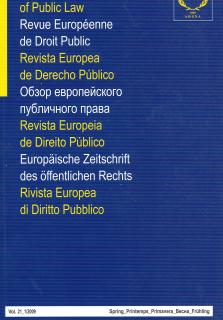
Administration without Frontiers?
European Migration Law
Bulgaria
Student at the New Bulgarian University, Department of Political Sciences
Bulgaria’s EU membership at the beginning of 2007 has entailed new challenges for the institutions empowered to deal with migration issues in and out of the country. Although the incorporation in the Schengen space is forthcoming, the responsibilities to safeguard the EU’s “outside borders” are, as a matter of fact, practical reality. Three of the Bulgarian land borders with its neighbours are with non-EU States. But more important is that through them passes a considerable flow of legal and illegal migrants whose final destination is Western Europe. In most cases the Bulgarian territory remains a transit point. The intensity of Bulgarian nationals’ settlement in other EU member countries decreased in the last years, but the process has not been stopped at all. The State institutions speeded up the amendment of the legislation in order to meet EU requirements. The public offices and NGOs working in the field participate in international governmental and non-governmental structures in order to improve the process of granting refugee status and to control illegal immigration. Within the framework of bilateral and multilateral partnership programmes with neighbouring and other States significant efforts have been made, designed to combat illegal trafficking of people, especially with regard to a criminal international network’s “lucrative business”.





















